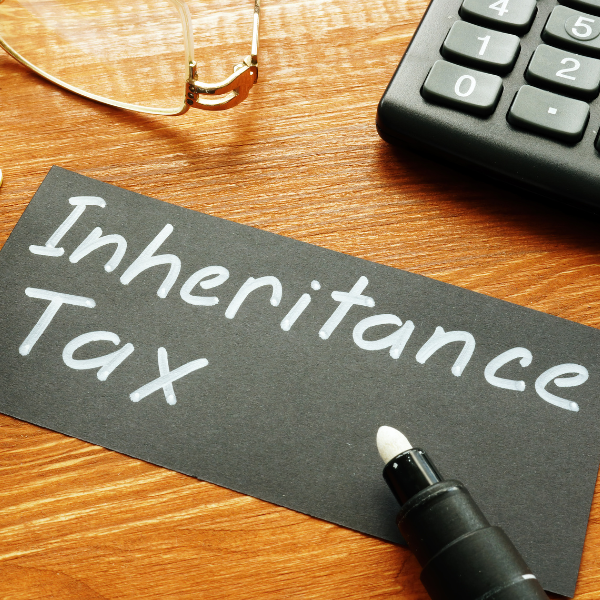Our Wills & Probate Solicitors offer guidance when planning for the future, or administering an estate following the death of a loved one.
Wills & Probate.
A Wills & Probate Solicitor is a qualified and experienced legal professional who provides services to individuals and families concerning estate planning and the administration of an estate following a person’s death.
When you lose someone close to you, and one of life’s most challenging events unfolds, the support and expertise we at Lanyon Bowdler can offer will be of both comfort and assistance.
Our Wills & Probate Solicitors are vastly experienced; you will find our expertise of great strength when you need it most. Our approach to your affairs will be warm, personalised and compassionate.
Key Contact
Edward Rees is a specialist Wills and Probate Solicitor. He is a partner and heads the Private Client Team, he has over 23 years’ experience specialising in advising clients.
Edward has extensive experience in Wills and Trusts, providing tailored advice on estate planning, asset protection, and inheritance tax. He assists with will drafting, trust creation and management, and trust administration, ensuring clients’ wishes are fulfilled while safeguarding their estates for future generations.
He is recognised as a Recommended Lawyer in the 2025 edition of Legal 500 and has been in Band 1 of the Chambers UK’s High Net Worth Directory since 2019.
Our awards and accolades.
Our Wills & Probate Expertise
The team is regarded highly by its clients. One source states: ‘Lanyon Bowdler give clients the feeling that they are big enough to cope, but small enough to care. They are a large, growing and aspirational firm, yet they do a brilliant job of providing clients with a warm welcome, good communication and a service that feels bespoke to the client’s needs‘.
The 2025 edition of the Legal 500 says; The highly experienced private client department at Lanyon Bowdler is represented at every office of the firm, and is therefore able to advise clients across the whole of Shropshire, Herefordshire and North Wales.
Testimonials
‘‘A very professional service from the start. All communications were prompt and transparent.”
‘‘Friendly and approachable – can ask questions and clarification without feeling silly. Responsive to emails and phone calls.”
“Efficient and client friendly. Prepared to go the ‘extra mile’.”
“We were most impressed with all aspects of the firm.”
The 2025 edition of Chambers UK ranks us in Band 1 for Shrewsbury & Surrounds and says ‘Lanyon Bowdler’s Shrewsbury branch has a broad private client offering. The team advises clients on trusts, estate planning and administration, tax planning, contentious probate and powers of attorney.
Strengths
“Lanyon Bowdler are very responsive, especially to our questions, and they are also transparent regarding timelines. I am thrilled with their service; it is excellent.”
“The service at Lanyon Bowdler is excellent. They are coherent, they give clear information and they are trustworthy.”
“All aspects of Lanyon Bowdler are impressive. The lawyers and team were very responsive. We have absolutely no hesitation in recommending them to anyone.”
In this episode, you’ll hear solicitors Edward Rees and Neil Davies discuss the importance of good legal advice in relation to The Court of Protection, lasting powers of attorney, wills, and estate administration.
Wills for Unmarried Couples and Couples not in a Registered Civil Partnership
In contrast to what many believe, the ‘common law’ does not exist as such, irrespective of the length of time a couple has been together and even if they have children.
If you are unmarried and pass away without a will in place, your partner will receive nothing; your estate will go to your blood relatives.
You may think that, if you die, you can trust your family to pass on that which you owned to your partner and children. However, not making the necessary provisions may be costly to your loved ones when you are gone.
Similarly, if a partner who is not married or in Registered Civil Partnership were to die, all his/her estate and property would go to their children (in a trust if under 18 and this trust would not benefit the surviving partner).
Hence the importance of a will; it informs the relevant people what assets and monies should go to whom, and reduces the possibility of mistakes.
Your Wills & Probate questions answered
A will is the best way of ensuring that your partner and children will be provided for in the event of your death.
Writing a will may be something which is easy to put off, yet it is one of the most important things you can do. So, do not procrastinate any longer: contact one of Lanyon Bowdler’s friendly and approachable lawyers, and let us help you to make sure your savings and assets go to the right people.
Whatever your age, wealth or marital status, writing a Will is of incredible importance. People often assume that their partner, children or grandchildren will automatically inherit their estate when they die, but it is seldom that simple.
The situation may become more complicated if there has been a divorce in the family, and if you are not married or in a registered civil partnership, your partner may end up with nothing. Making a will protects your wishes and avoids disputes in the future.
Writing a will is also an important part of inheritance tax planning, helping to ensure that you do not pay more inheritance tax than is necessary.
The main things that should be included in your will are:
- who you would like to receive your money and assets, and how they will be divided between the relevant people
- who should take care of your children (if they are under the age of 18)
- who you want to be in charge of handling your estate and carrying out your wishes after your death (your executor)
- and what would happen should the people you have named as beneficiaries in your will die before you
We are experts in our field and will guide you through the whole process from beginning to end. Based in our local offices, we have expert wills and probate solicitors in Shrewsbury, Hereford, Oswestry, Telford, Bromyard, Ludlow and Conwy.
A significant concern when making a will is not only providing for a partner or spouse, but also provision for one’s children.
Family relationships are often much more complex than they might have been in the past, with extended families and second, third or fourth marriages increasingly common.
Making a will to provide for children might include providing for:
- Children from a previous relationship
- Children with a current spouse or partner
- Adopted children
- Step-children
- Grandchildren
- Children who are the subject of guardianship
- Nieces and nephews
It is very important to get legal advice when making a will to provide for children; disagreements are becoming increasingly common, especially when there are children involved from more than one relationship.
It may not necessarily be children who dispute a will; in some instances former spouses, registered civil partners or partners who have brought up the deceased’s children may contest a will.
We understand that this information is complicated and potentially overwhelming. Please get in touch with us and we can explain what needs to be done.
You can also include your children as beneficiaries in your will even if they are very young. In this situation it is a good idea to think about what age you would like your children to reach before being able to access their inheritance. Whilst the child is under that age the inheritance can be managed by Trustees – who can be appointed in your will.
It is a good idea to keep on top of your will and review it regularly. We know and appreciate that things can change quickly. If you need any advice on this matter please do get in touch.
If you die without a will, your estate will pass automatically under the Intestacy Rules. This process is known as dying ‘intestate’ – and may not always result in the outcome you want for your loved ones.
The laws of intestacy give priority to your closest relative, with spouses coming first in line, followed by children, parents and siblings. This may appear to make sense; however, modern families are becoming increasingly complex. These laws can create problems and heartache.
For example, if you live with your partner but did not marry or enter into a registered civil partnership, under the intestacy laws your property would be left to your closest relatives according to the order above. Your partner may be left with nowhere to live.
What our clients say.
Estate Administration
There are five basic stages to the estate administration process; these include: ascertaining the nature and extent of assets, valuing assets, applying for probate, distributing the bequests in the will and drawing up accounts detailing how the estate was distributed. These are then sent on to the beneficiaries.
If a beneficiary contests a will, this can delay probate. Sensitive probate matters can become contentious and stressful – and then result in the delay of the administration of an estate.
Probate
Whereas a will is a legal document that sets out the wishes of the deceased, probate is the process of executing the will according to those wishes. It involves organising the distribution of money and assets – after paying debts and inheritance tax where necessary.
It will not be possible legally to transfer the deceased person’s finances and property to the beneficiaries until you obtain Grant of Probate. In short, the beneficiaries will not be able to inherit what had been intended for them.
If the person who died owned the property, shares or money jointly, probate may not be required.
Every situation is unique. Everyone deserves carefully delivered advice tailored to their own set of circumstances.
There is no such thing as a standard estate, and there are a wide range of factors potentially involved in sorting out someone’s assets. Once we have gained an understanding of the deceased person’s Estate, we will provide you with a tailor made pricing proposal.
For a fixed fee probate service talk to our experienced team today.
Our Wills & Probate Expertise
This is the name of the document issued to you by the Probate Registry. It confirms your right to administer the estate of the deceased. This includes cashing the assets of the estate and distributing them as detailed in the will.
When someone dies, you will have to find out if probate is needed to deal with their estate. Probate isn’t necessary every time a person passes away; it depends on the value of the deceased’s assets and how their assets were held.
In England and Wales, probate is not usually required for small estates in which there is no property and only a small amount of money. If the estate contains property or land, it is not considered a small estate. An estate will certainly be considered small if its total value is less than £5,000, but the threshold is often higher. Banks and financial institutions have their own limit; you will need to check with each of the organisations holding the money. Probate will be needed if any assets are held in the deceased’s sole name that are valued above the probate threshold.
If you don’t obtain probate when someone dies, but probate is needed to administer their estate, beneficiaries will not be able to receive their inheritance. The assets of the deceased will be frozen and held in a state of limbo, as no one will have the legal authority to access, sell or transfer the assets.
Intestacy – Dying Without a Will
Handling an estate which has no will usually involves a family member acting as the personal representative of the deceased and administering the estate.
The personal representative applies to the court for a Grant of Representation, to enable him to administer the estate.
If there is no will, the Rules of Intestacy will determine the distribution of an estate and who is entitled to claim from it.
The personal representative can appoint a professional, such as a solicitor, to deal with the estate’s administration.
Intestacy involves an unfamiliar legal processes, with potential financial complications and a great deal of worry and stress – especially without professional help from a probate solicitor. Seeking help at an early stage can speed up the process and make sure that the probate process goes smoothly, at a time already difficult enough for families.
The Rules Of Intestacy
When someone dies without a valid will there are strict inheritance laws in place. These are known as the Rules of Intestacy. They apply in England and Wales.
The Rules of Intestacy can be quite harsh as they do not often bear in mind modern family relationships. For example, no provisions are made for unmarried and unregistered partners. This means that the surviving partner will not automatically inherit any part of the estate that was owned in the sole name of the deceased.
Despite this, a partner can often make a valid inheritance claim. Alternatively, the family can (in certain circumstances, if they agree to) legally vary the distribution on intestacy in order to provide for the partner.
The Rules of Intestacy only recognise natural and adopted children for the purpose of inheritance; step-children are not acknowledged. In spite of this, in many cases step-children have a valid claim.
You can see that situations may quickly become complex. The best way to make it clear who should inherit your property and possessions after you die is by making a will.
What is a Grant of Letters of Administration?
A Grant of Letters of Administration is the required legal document when dealing with the estate of someone who has died without a will.
In this situation, one of the deceased’s relatives will need to go through the probate and estate administration process. This person is known as the ‘administrator’. Executors and Administrators are known generically as Personal Representatives.
If you’re the administrator, one of the first things you’ll be required to do is obtain a Grant of Letters of Administration. This is a document issued by the Probate Registry and gives you the legal authority to deal with the estate.
If you are unsure about anything you have read, please contact us for advice. We offer a warm and professional service at this difficult time.
Contact our Wills and Probate Solicitors
Our Wills and Trusts Solicitors have extensive experience in helping individuals and families plan for the future, ensuring that their assets are protected, their wishes are clearly documented, and their loved ones are provided for. Our expertise in estate planning, will drafting, and trust management makes us one of the leading firms in this area, giving clients peace of mind that their affairs are in safe hands.
We are committed to guiding you through every aspect of the Wills and Trusts process. Whether you need assistance with a simple will, a complex trust arrangement, or advice on estate administration, we will ensure the process is handled efficiently and with your best interests at heart. Our expertise is recognised by Legal 500 and Chambers UK, reflecting our reputation as a leading firm for estate planning and trust management.
Please give our Wills and Trusts Lawyers a call for a friendly, confidential conversation about how we can help support you.
We have offices in Shrewsbury, Bromyard, Conwy, Hereford, Ludlow, Oswestry, and Telford, so we are well-placed to assist clients across Shropshire, Herefordshire, Mid and North Wales. Our specialists regularly act on behalf of individuals and families across the Midlands, and our expertise makes us one of the leading firms of Wills and Trusts Solicitors in Birmingham, Wolverhampton, and Worcester.
Get in touch. We listen and we care. Call our team or complete our online enquiry form, and we will get back to you. We can also arrange a home visit if more convenient.
Meet the team.
Case studies.
Latest knowledge.
Our awards and accolades.
Get in touch.
"*" indicates required fields

 Back
Back



































 Case Study
Case Study

 Blog
Blog




 Podcast
Podcast













